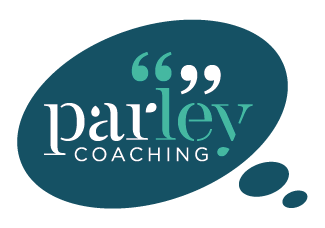Thinking again
A common failing in our working lives is the quality and volume of our thinking.
Imagine what we do as a kind of system of inputs and outputs. An earlier post revisited the crucial input of energy. The fuel. The problem is that when we are sufficiently fuelled, we act, do, hunt and gather. We often move to output in a hurry.
My all-time favourite coaching related book, nothing else close, is Nancy Kline’s “Time to Think”. I have reread it several times, attended courses on it, enjoyed it being an integral part of The Alliance, coached using it, and slowly but surely tried to practice what Kline preaches. I will not simply restate what Kline says, but instead give thoughts on its importance and how we might strategically develop our thinking over the year.
First though, why has thinking become a problem? Because, culturally, at least in most of society, it has become less valued than action, whatever the action. Because, driven by our personal stories and working practices (and pressures), we don’t have time to think, or so we think. Because, thinking is often confused with wandering lonely as a cloud ruminating, and over-thinking has become a buzz-word excuse for not thinking. Because, the world is full of sweet-smelling, easy and addictive interruption, interruption that delights in one thing: the cessation of your thinking.
So why should we think more?
I remember being lucky enough to attend a lecture given by Malcolm Gladwell at a Ropes & Gray conference. Among other things he told us that he had attempted to pass the famed US lawyer aptitude test (the LSAT). He prepared for the test, and in the test he got every question right, but still got a poor score because he ran out of time. His thinking, which most would say is brilliant, is slower than is tested for in the LSAT. And he posed the question to the (often Harvard educated) audience: so, do lawyers only have to do things they can do quickly?
I turned to social media and read the considered view of the mass of American lawyers on a podcast Gladwell had done revealing his LSAT views. Most said that the best law schools want smart and fast. It is competitive, Malcolm. Speed up… Which kinda showed an absence of considered thought, in my opinion. Gladwell isn’t saying what they think he is saying. He is saying, simply, that there are problems which require slow thinking, which surely nobody can dispute (reference the psychology masterpiece, Daniel Kahneman’s “Thinking, Fast and Slow”). But the response on social media did suggest a culture, even in elite US law, which wasn’t prepared to think slowly.
I reflect on my own experience and can point to many occasions when slower, deeper thinking was possible and would have led to better results.
Coaching is primarily about igniting a client’s own best thinking. It aspires to be a safe space in which clients can be creative and challenging around their thoughts, with view to developing. I have felt the personal benefits of more time thinking, in particular when I do so paired with somebody good at listening. I have also seen multiple clients surprise themselves with a revelation and a determination that has come from the opportunity to slow down and think. In my opinion this matters more than we think it does.
What does better thinking look like?
Well, of course it doesn’t need to be anything like the slow thinking of Gladwell’s. It is not about being brilliant or creative, two words that in my experience scare potential thinkers away. We do all have our own things to think about though. Start with them. Better thinking is about allowing the thoughts to come. Simple. Science and practice show how thoughts come in waves, often at irregular intervals, the best thoughts often arriving once the first waves have passed – after many have given up. Allow the waves. And as you plan for the new year, the thinking may be more about what you are going to dial up, dial down, experiment with, commit to, find closure around. Appreciate the emotion that may be involved. The most important thinking may well require emotion. Emotion isn’t bad for thinking because it often precedes the clearest thought.
How do we get better at thinking? Practice, that almost goes with saying. And establishing the right commitment and environment for the thinking. A coach can help but in the everyday so can self-reflecting on whether you are always giving action priority over thinking. Are you, for example, portioning out your day so the harder, thinking tasks are left, while the comfort food, easier tasks are carried out at your brightest time of the day. This can work sometimes, but I’d suggest that each week you spend at least one day reversing this practice. There are many times when we haven’t thought enough. I would say in my experience this is particularly true of things we are not reacting to. We are better when somebody has hit a ball at us. Not so good at things that are opportunities, things we need to be strategic about, things where we may have inbuilt assumptions that need to be questioned.
So, give yourself a couple hours and simply start by asking: what am I going to need to think about this year?
What is important even if it isn’t urgent?
Something that if I can think it through and get right, could transform my year?
How do I ensure this thinking gets oxygen to breathe?
Then consider the environment for the thinking. Hire a coach. Find a mentor. Talk to a trusted colleague about how you might help each other think things through. Diarise meetings and space so you stick to a schedule of consistent, better thinking. Be ambitious with what this year might bring in terms of revelation. Revelation over reaction. Slow it down. Thinking can take time. Thinking is too important to ignore. Then think again. And again.

